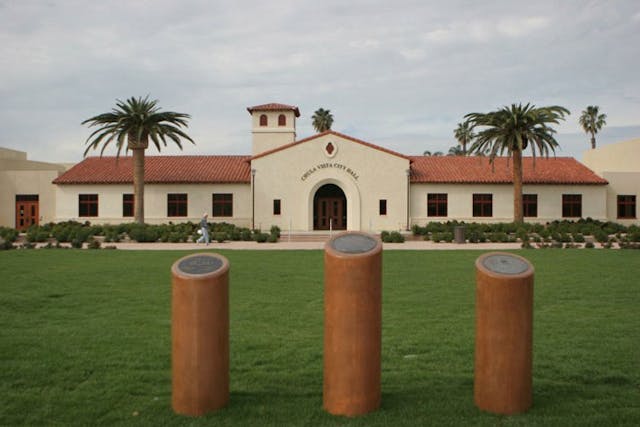During National Hispanic Heritage Month Hispanic Heroines Need Recognition
 Perhaps it was no great surprise to many that when the former Governor of Chihuahua, Barrio Terrazas, told a gathering of media folk that the 500-plus Juarez women who had been abducted, sexually assaulted, tortured, mutilated and murdered, “was a natural phenomenon.”
Perhaps it was no great surprise to many that when the former Governor of Chihuahua, Barrio Terrazas, told a gathering of media folk that the 500-plus Juarez women who had been abducted, sexually assaulted, tortured, mutilated and murdered, “was a natural phenomenon.”
Adding insult to injury, Sr. Barrios by then Ambassador of Mexico to Canada, gave his reasoning for the still unsolved crimes by adding, “they were slain because they walked in dark streets and they were dressed provocatively and because they were wearing miniskirts.”
Not that here in America our respect for women is heart- whole and free from hypocrisy or pretense, but this particular hombre clearly underscored the macho attitude and passivity of his government inaction in this case of extreme feminicide.
If such remarks were not enough to earn him a spot in Mexico’s Hall of Shame, Terrazas also blocked the creation of an independent commission to study the crimes, one that was recommended by the UN Human Rights Commission.
As America ushers in the 2014 model of National Hispanic Heritage Month and our neighboring nation prepares for its traditional “grito de independencia” – a different cry would be to recognize their mujeres involved in their quest for independence during this year’s dieciséis de septiembre celebrations. Much like U.S. historians, literate Mexicans involved in telling it like it was back then, have a knack for omitting contemporary justice movements and continue to erase many of the voices crying out for human rights.
Few Mexicans, and most of their American counterparts, are aware of the unique contributions made by women throughout Mexico’s history. Oh, some have been romanticized, like Las Adelitas, of the 1910 Revolution, but there are others that are less likely to have a historic spotlight shone on them.
Take for example Maria Josefa Ortiz de Dominguez, known as “La Corregidora” (the corrector), who actually was a wealthy criollo-Creole woman, but had aspirations of a free Mexican nation as proven by her hosting of secret literary salons to read and discuss works of Enlightenment philosophy banned by the Catholic Church. When her husband had been appointed a corregidor (magistrate) in Querétero, Josefa Ortiz still maintained close ties with rebel organizers.
Then there was Gertrudis Bocanegra, known as “La Heroína de Pátzcuaro” another criollo-Creole woman born to wealthy peninsulares (Spanish born parents) in Michoacan whose husband was originally a soldier in the Spanish army but when the Mexican War of Independence broke wide open, both of them joined the fight against Spain.
This particular lady’s life reads like a novel, historians say she worked as a messenger, aiding communication between different fronts, but was finally captured in her hometown of Pátzcuaro.
One of the stories around her execution include the claim that although she was tortured, she never gave up the names of her fellow rebels, and that she continued ranting against her executioners until she was shot by a firing squad. Her escapades were immortalized in a Spanish-language movie, “Gertrudis.”
If you’ve ever in Mexico City visit the area on Paseo de La Reforma where El Angel de La Independencia looks down on a plaque honoring Leona Vicario, another criola who was born into wealth in the Aztec Capital. Leona, because of political differences, was forced to flee to Tacuba, where she founded a group of women supporters of the independence movement. Later, she used her fortune to help fund the rebellion, and transmitted information to the rebels, acting as a spy through her connections in Mexico City, and co-founding a secret organization known as Las Guadalupes. Leona was imprisoned in a convent for her rebel involvement until she was able to escape to Michoacán.
Of all these patriotic women, La Corrigidora has received the most attention because it was impossible to overlook the fact that it was thanks to her that Mexico celebrates to its heart’s content on the 16th of September.
You see, the rebellion wasn’t scheduled to begin until December, but Spanish Royal troops began searching for rebels around Querétero in September, where Padre Miguel Hidalgo y Costilla sought rebel support. Doña Josefa, already a suspected rebel supporter, was ordered to be locked-up in her own bedroom. But she outsmarted her captors by sending a secret message to the mayor of the city. His honor, a stout rebel supporter himself, informed the Padre that the Spanish forces knew of his whereabouts and were planning to capture him.
So three months before la revolución was to start, on the eve of September 16, 1810, Hidalgo y Costilla’s speech, now famously known as Grito de Dolores, passionately urged the gathered masses to fight for Mexico’s freedom. The rest, they write, is history. Mexican History, that is, without giving due credit to its mujeres.
We too have cast a blind eye at our heroines throughout history. Perhaps some day both nations will do an about-face and co-celebrate them on or around Hispanic Month.






